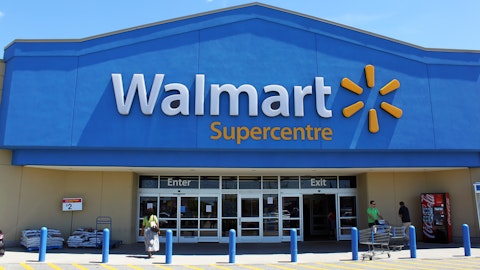Joe Fletcher: Thanks, Colin. Lois, next question?
Operator: The next question is from the line of Chris Schott from JPMorgan. Please go ahead.
Chris Schott: Great. Thanks very much. One follow-up on the last set of questions. Is it still reasonable to think about a net Mounjaro price that could be above that of Trulicity as we look out to 2024 or whenever you achieve kind of comparable payer access. And then my question was on donanemab. I know there wasn’t a huge revenue opportunity tied to the accelerated approval. But I think you had talked about using that gap between accelerated approval and full approval to really ramp physician education and infrastructure, et cetera. How do you kind of manage through that now I guess where we’re going to have maybe a full approval that could be occurring closer into a CMS decisions? So just maybe elaborate a bit on what that means for donanemab over time. Thank you.
Dave Ricks: Thanks, Chris. All right. We’ll go to Mike for the question about Mounjaro price kind of over time and how it might compare to Trulicity. And then to Anne on your donanemab question about activity that would occur to ramp up HCP education. Mike?
Mike Mason: Yes, thanks for the question. I can’t get into roles about our net price for obvious reasons but maybe I’ll address the question this way. I mean if you look at €“ when we have – when we reach €“ we think we’ll reach broad access for Mounjaro and reach ultimately similar access levels that we have for Trulicity. There’s nothing differently about how we’ll promote or how to support patients on Mounjaro versus Trulicity. So at the end of the day it will come down to our net price negotiations with payers. We believe that Mounjaro has a better profile. We invest a lot of innovation in there. And we do believe that it should have a better net price than Trulicity.
Dave Ricks: Thanks, Mike. Anne?
Anne White: Yes. Thanks, Chris for the question on physician education and readiness. So as you said, the accelerate approval is not going to provide access for the vast majority of patients. So it doesn’t impact us in that way. And obviously, accelerate approval would have made it maybe a little bit easier to do some of the things that we wanted to do, but there’s still a great deal that we can do actually have been doing to make sure that the healthcare system is ready for these medicines. So we begin working on that, things such as developing the diagnostic ecosystem are incredibly important, making sure that there’s better integrated Alzheimer’s disease pathways to make sure that physicians can properly identify refer infuse these patients.
So that’s the area of focus right now. Certainly diagnostics are a key area of focus for Lilly. We’ve continued to expand our PET network to make sure that we’re ready for patient diagnosis. And then as well we continue to be committed to PTAL blood tests and intend to launch that this year. So many things going on that I think can make us very ready for traditional approval and making sure that people can access these medicines.
Joe Fletcher: Thanks, Chris for the questions. Lois, next question?





